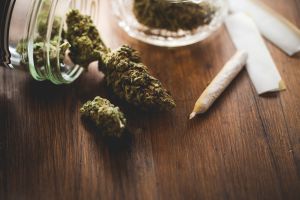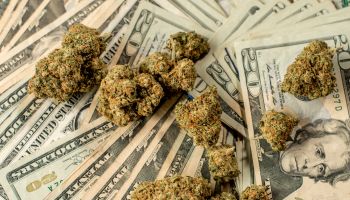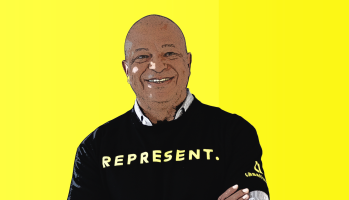San Francisco is leading the nation in overturning marijuana convictions and will dismiss approximately 3,000 misdemeanor cases and review 5,000 felony cases. The action comes on the heels of the passing of Proposition 64, which legalized the recreational use of marijuana. Prop 64 will allow San Francisco to retroactively apply California’s new marijuana legalization laws to prior convictions, expunging or reducing misdemeanors and felonies dating to 1975. Drug convictions disproportionately impact African Americans. African Americans and whites use drugs at similar rates, but the imprisonment rate of Black folks for drug charges is almost 6 times that of whites. African Americans represent 12.5% of illicit drug users, but 29% of those arrested for drug offenses and 33% of those incarcerated in state facilities for drug offenses. According to the NAACP, the over incaceration shatters lives, destroys communities and harms the children of those imprisoned.
Not only are Black folks incarcerated at dramatically higher rates than whites for the same crimes they are shut out of the growing legal marijuana business. In Maryland, licenses for growing and selling medical marijuana is among the highest in the nation. Prospective medical marijuana growers have to pay $125,000 a year for a two-year license, while dispensaries have to pay $40,000 a year, according to the recommendations of a state commission. Maryland’s Legislative Black Caucus is pushing the General Assembly to pass a bill expanding the medical marijuana growing industry to include African-American firms. And some members suggested the powerful voting bloc should “take a knee” if the legislation is not on the governor’s deskthis month. Black leaders in Annapolis were outraged in 2016 when the first 15 preliminary licenses to grow medical marijuana were announced and no firms led by African-Americans were among them. African-Americans make up about a third of the state’s population, and the law legalizing medical marijuana instructed regulators to “actively” seek racial diversity when awarding the licenses. Since last year, the Black Caucus pushed for an expansion of the nascent medical pot industry, and wanted to create five new pot-growing licenses that would likely go to African-American firms. Legislation to do that advanced almost to passage this year but died without a final vote in the waning minutes of this year’s General Assembly session in April.
The last-minute and unexpected failure of the legislation prompted a strong rebuke from black leaders.
“We have not shirked away from calling it what it was, and we felt that, once again, black folks were put at the back of the line,” Caucus member Cheryl Glenn said
Unlike Maryland, some states that have legalized marijuana are encouraging minorities to enter the growing cannabis industry after years of drug enforcement that had a disproportionate effect on black and Hispanic communities. California voters legalized recreational marijuana in November. The first retail sales are expected in January. Oakland officials approved a program that initially sets aside half of the city’s marijuana licenses for low-income residents who have been convicted of a cannabis crime or who live in a specified neighborhood where drug enforcement has been intense. Advocates are urging similar programs statewide, including in San Francisco and Los Angeles.African-Americans made up 5.6 percent of the state but 16 percent of marijuana arrests in 2015, according to an AP analysis of statistics collected by the FBI.
Florida lawmakers passed a bill last year to address issues that arose with the state’s 2014 medical marijuana law, including provisions to favor black farmers.
The provisions ensure that once the state’s medical marijuana patient registry reaches 250,000, three additional cultivation licenses will be made available, with one of them designated for a member of the Florida Black Farmers and Agriculturists Association.
Black farmers in Florida were among thousands across the country who sued the U.S. Department of Agriculture for racial discrimination, saying they had been unfairly denied government loans and subsidies in the 1980s and 1990s. The case ended with an historic settlement in 1999.
What should Maryland do? Let your legislators know how you feel and connect with me @jaztalk1 on Instagram, Twitter and Facebook

Source: MmeEmil / Getty
http://www.baltimoresun.com/news/maryland/politics/bs-md-black-caucus-annapolis-20170930-story.html















